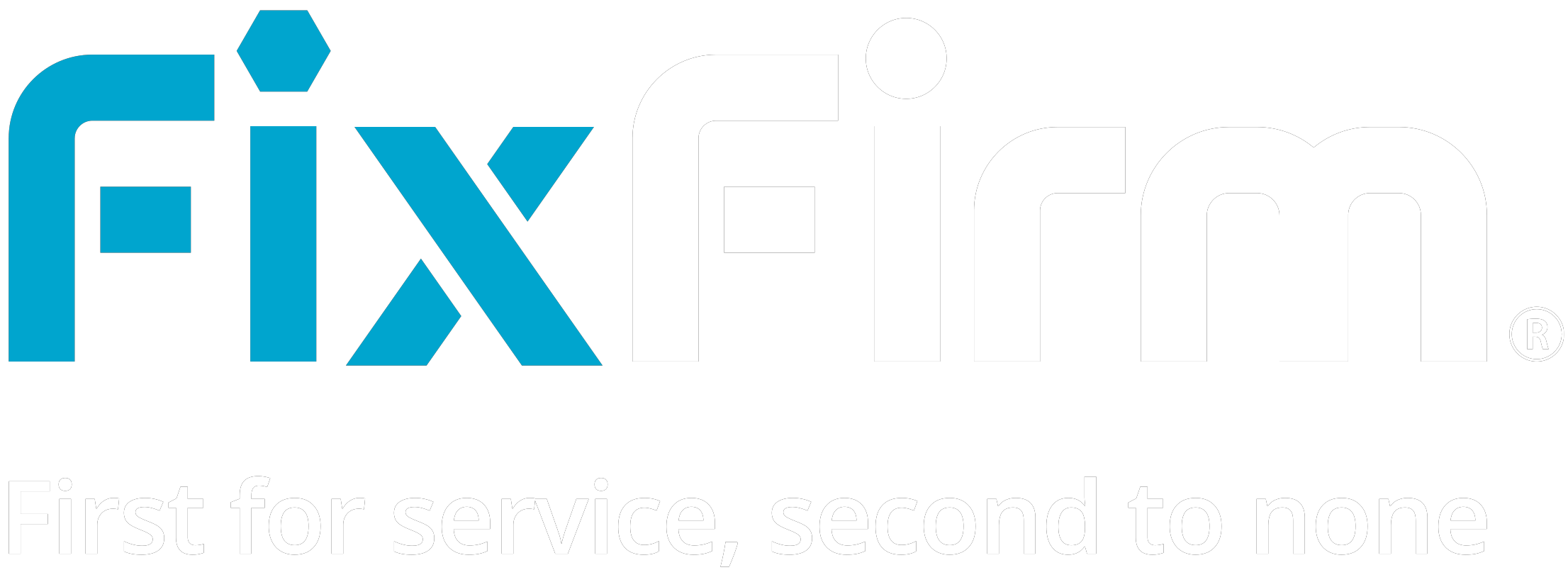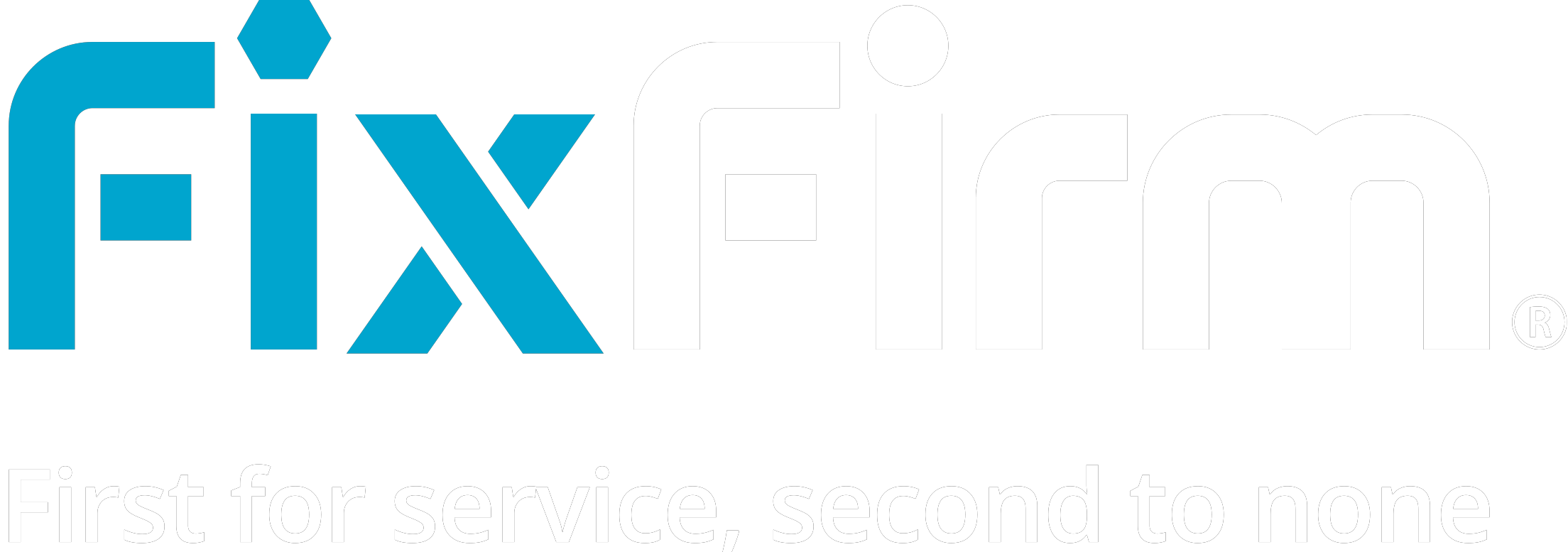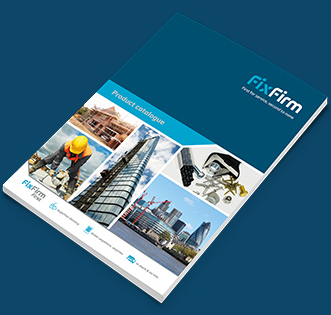Construction is a complex and intricate process. Fasteners play an integral role in ensuring the stability, safety, and functionality of any building or infrastructure. From securing beams to connecting essential elements like roofs with walls, fasteners are versatile- and necessary- components of construction sites around the world. These small pieces of hardware provide the necessary link between two fixtures or materials during the building process. They’re incredibly versatile and come in various shapes and sizes which makes them ideal for joining different elements in structures together effectively while also providing additional strength.
In this blog post, we will discuss what construction fasteners are, considerations to make when you are choosing a fastener for your project, some of the common types of fasteners, the importance of fasteners in construction and how FixFirm can help you with your fastener requirements.
WHAT ARE CONSTRUCTION FASTENERS?
Construction fasteners are hardware devices used to join or secure two or more materials together in a non-permanent way. They can be made of various materials, including metal, plastic, or composite materials, and they come in a wide variety of shapes, sizes, and types to suit different construction needs.
Each type of fastener is designed to perform a specific function, such as securely holding a building together, resisting corrosion, or distributing loads across multiple materials. Each project requires a different type of fastener to ensure a strong and safe final construction.
Fasteners are used in a variety of construction applications, such as framing, roofing, drywall installation, and concrete work. Choosing the right type of fastener for the job is critical to ensure that the structure is strong, safe, and durable. Fasteners may be the smallest component of your project, but they’re among the most critical. It is essential that you choose a fastener that meets the specific needs of your product and how it will be used.
CONSIDERATIONS TO THINK ABOUT WHEN CHOOSING FASTENERS
- How is the fastener being used?
Is the fastener opened and closed regularly or is it seldom opened? How heavy are the materials that it must hold together? Is the structure permanent or temporary?
- Where is the fastener being used?
What environmental factors does the structure have to deal with? Is the structure by salt water? Does it rain a lot or is there a lot of hot weather? Is the structure in a place prone to natural disasters (earthquakes, hurricanes etc.)?
- What’s the right type of fastener?
There are many variations of fasteners. Each fastener has its own strengths, weaknesses, and applications, so certain types are better choices in certain situations.
- What is the right material?
The material you choose affects not just the cost but also the strength and corrosion resistance of the fastener. Material examples include plastic, steel, bronze, brass, and nylon.
- What is the right size?
How and where the fastener is being used also factors into fastener size- most come in industry standard sizes, for example, metric bolts are sized from M5 – M30 with hole sizes from 5.5mm – 32mm. They can be used on a variety of construction projects, from simple dining room table builds to commercial planes and cruise ships.
Choosing the wrong fastener will mean your product doesn’t hold up over time and this can prove to be an expensive mistake.
TYPES OF FASTENERS
There are numerous kinds of construction fasteners, and the right one usually depends on multiple factors, such as those listed above. Here are five of the most popular construction fasteners:
Nails come in a broad range of options that you can use across different applications, such as box nails, flooring nails and roofing nails. Each type of nail has unique attributes that make them best suited for a particular use or material.
Bolts and nuts hold parts together firmly by working in tandem to hold components together. The ut is fastened onto the end to keep the bolt in place. Some common types of bolts include plough bolts, Allen bolts, flange bolts and carriage bolts.
Screws are a popular choice for wood construction projects due to their versatility and holding power. Screws are like bolts, but they don’t need nuts to hold them in position. Common types of screws include masonry screws, wood screws, sheet metal screws and machine screws.
Rivets are the ideal type of fastener to get when looking to make a permanent joint between two components. They are very durable compared to other types of fasteners. Types of rivets include split rivets, solid rivets, semi-tubular rivets and blind rivets.
This type of fastener is usually used for connecting an item to a material, such as concrete or drywall. Anchors, like the anchor of a ship, keep the object in place and prevent it from moving once it has been ‘docked’. Various types of anchors include screw anchors, hollow wall anchors, drive anchors and sleeve anchors.
THE IMPORTANCE OF FASTENERS
Fasteners are a vital component of the construction industry, serving as the connective tissue that holds structures together. They provide structural integrity, help to distribute loads and stresses of the building and keep the structure stable and secure.
Safety: Fasteners are critical to ensuring the safety of structures. Properly selected and installed fasteners ensure that materials are securely fastened together and that structures can withstand the loads and forces placed upon them.
Durability: Fasteners play a key role in ensuring the durability of structures. They must be able to withstand environmental factors like moisture, heat, and corrosion and must be made from materials that can withstand the rigours of the construction process.
Stability: Fasteners help maintain the stability of structures. They can be used to reinforce and strengthen connections between materials and structures, providing additional support and ensuring that the structure remains stable over time.
Versatility: Fasteners come in a wide variety of shapes, sizes, and types, making them highly versatile. They can be used for a wide range of construction projects, from small home renovations to large-scale commercial developments.
HOW FIXFIRM CAN HELP
As a national supplier of construction, engineering, mechanical, and electrical products, Fix Firm has been at the forefront of the industry's move towards greater efficiency, cost-effectiveness, and sustainability.
At Fix Firm, we are committed to providing businesses with the products and services they need to stay ahead of the curve in the construction industry. With our cutting-edge technologies like SlickStock and ProcureSite, we are helping businesses to optimise their inventory, streamline their procurement processes, and stay on top of the latest trends and innovations.
To find out more about us, or to get in touch, please CLICK HERE.
BACK TO ARTICLES

